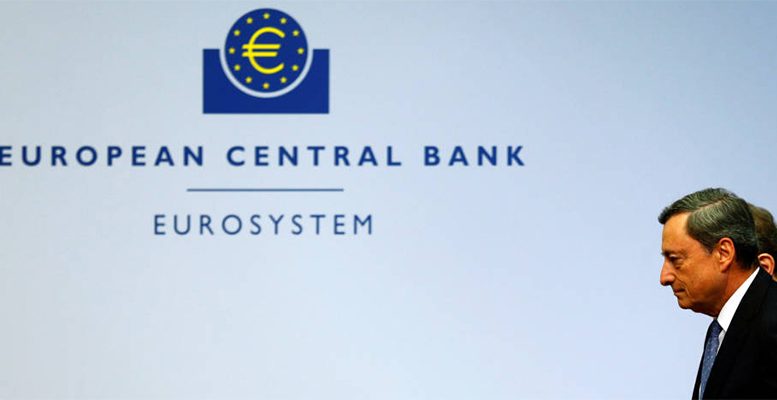Last week ECB President Mario Draghi announced that the institution will stop injecting liquidity into the system next December. This leaves Eurozone banks in a slightly odd situation: returning to “normality” after years of atypical measures. Given the high heterogeneity of the European banking systems, the withdrawal of QE will have different impacts on different countries, depending on the characteristics of the models of their banking business. Santiago Fernández at Lis and Ana Rubio at BBVA believe that, generally speaking, the banking systems most prejudiced by QE will be those who benefit most from its withdrawal. To calculate this impact, the economists point to varios determining factors, with both upside and downside effects:
- In the first place, if the weight of credit at variable interest rate is high, there will be a greater increase in margins. This implies a very positive effect for countries like Spain, where variable rate mortgages represent a considerable proportion of bank balance sheets. In Spain, while it is true that an increase in interest rates would imply larger interest payments by companies and households, economic and employment growth, together with progressive deleveraging in the private sector, will have to balance this effect. In this environment, it is to be expected that Spanish financial entities were the clear winners in comparison with their European counterparts. An interesting positive effect of the crisis is the correction of the excessive bias towards variable interest rates in the mortgage portfolios in countries with a history of high and volatile inflation (like Spain and Italy). The proportion of fixed interest rate products in mortgage credit in these countries is increasing, which suggests convergence with the core countries like Germany and France.
- Secondly, if the proportion of retail deposits is high, as is the case in Spain, the impact of an increase in oficial interest rates will be greater, alleviating the restriction of the zero lower bound.
- Thirdly, if the cost of funding of the banks is very dependent on sovereign debt, the increase in returns on public debt could imply increased costs for the Banks.
This could imply a more negative effect for Spain.
- Finally, if the holdings of European soverign debt are high, it will be noted before the reduction of their price. That is a negative effects on bank balance sheets, especially sharp in the case of Spain, where the sovereign debt portfolios in bank balance sheets are especially high (up to June 2017, the holdings of sovereign debt amounted to 11.2% of bank assets in Spain, compared to 14% in Italy, 7.4% in France and 3.8% in Germany). The current debate over the regulatory treatment of sovereign risk is, therefore, very relevant, which should be analised carefully by the European authorities.
According to the ECB Survey of Bank Loans (third quarter 2017), European Banks declare that the central bank´s asset purchase programme has helped to reduce these holdings in the last 6 months and that it will continue to do so over the next 6 months.
Measures have already been taken to break the link between banking and sovereign debt in Europe, with the requirement to absorb losses internally before getting to the point of a sovereign rescue (bail in as opposed to bail out). However, the homogenous implementation of the resolution regulations in all countries remains pending.
On the other hand, there are factors, like the liquidity of the financial systems, which will not be as relevant in determining the impact of the withdrawal of QE, given that it is now significant and has taken advantage of LTROs to accumulate resources.
One factor which strengthens the differentiated impact of the withdrawal of QE on different countries is that it takes place at a delicate moment, with banking union still not completed. And this is important because the link between banking and sovereign debt has still not been erradicated. Even if banking union represents the greatest concession of sovereignty in Europe since the creation of the euro, it is now necessary to complete a single deposits guarantee fund (DGF) and a common public backstop. Moreover and in parallel, it will be necessary to create a common public backstop to the Resolution Fund, given that its size (55 billion euros once the funding process concludes in 2024) could be considered insufficent in case of a systemic crisis and massive collapse of banking institutions.





